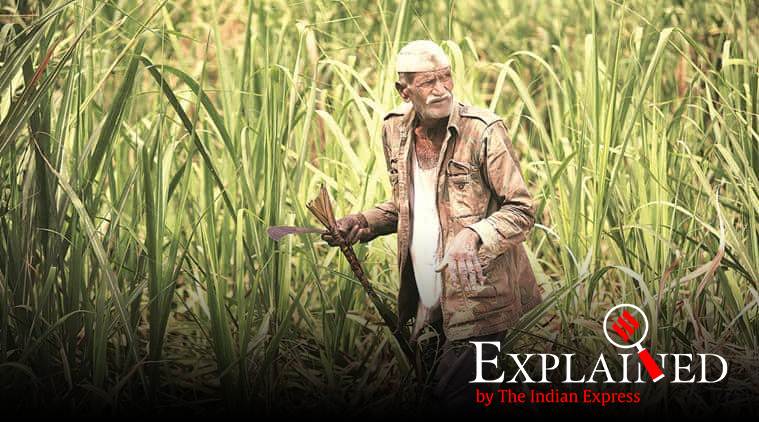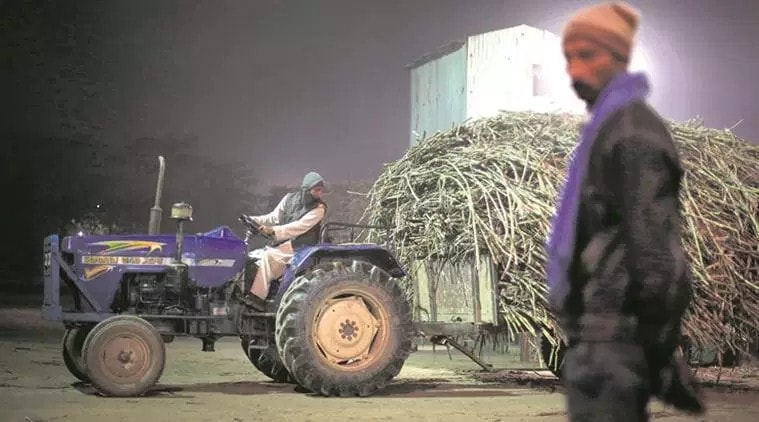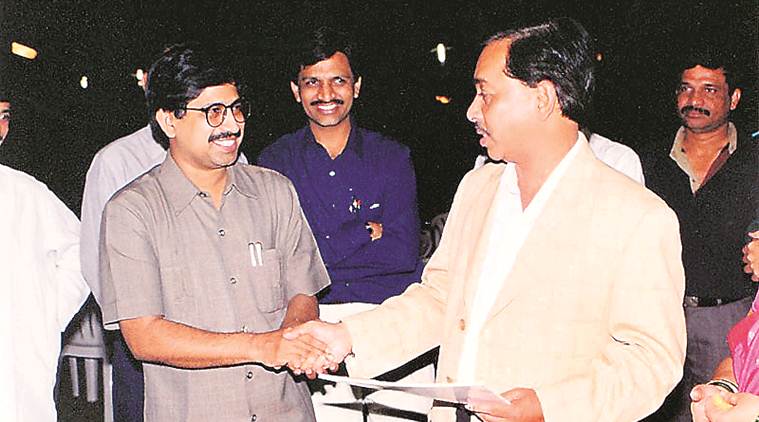शिक्षण ही एक निरंतर चालणारी प्रक्रिया आहे असे मानना-या व ज्ञान संवर्धनासाठी एकत्र येणा-या सवंगडयांचा मेळावा (A place to meet and get informed for all those who believe that learning is an unending process)
मनोरंजक स्फूट लेखन
Friday, December 13, 2019
शेखर गायकवाड यांना अभिनेते स्व. सदाशिव अमरापूरकर गौरव पुरस्कार जाहीर....
Thursday, December 5, 2019
Monday, December 2, 2019
Published News : Explained: Why sugar crushing season operations in Maharashtra may never be the same

Friday, November 22, 2019
News Published : 22 नोव्हेंबरपासून राज्यात साखर कारखान्यांचा ऊस गळीत हंगाम
साखर संघाची बैठक राज्यपाल भगतसिंह कोश्यारी यांच्याशी प्रश्नांवर चर्चा
News Published : Maharashtra gets Governor’s nod to start sugar season from Nov 22
https://www.financialexpress.com/economy/maharashtra-gets-governors-nod-to-start-sugar-season-from-nov-22/1769554/
News Published : Maharashtra allows sugar mills to start crushing cane from Fri
Monday, November 4, 2019
News Published : Maharashtra’s Sugar Commissionerate cracks the whip to make mills pay up dues
Monday, September 30, 2019
News Published : Maharashtra sugar mills to pay interest for delayed payment to growers

Wednesday, September 18, 2019
News Published : Maharashtra: A bureaucrat demystifies legal jargon for the common man
The Indian Express :

Saturday, July 6, 2019
News Published : “Sugar Conference 2020” commences in Pune to deliberate on sustainability of the sugar industry
Monday, June 10, 2019
Monday, March 25, 2019
Tuesday, March 5, 2019
Monday, February 18, 2019
News Published : ‘Expect the season to end with less than 10 per cent cane dues’
The Indian EXPRESS : Monday February 18, 2019
In an interview with The Indian Express, state Sugar Commissioner Shekhar Gaikwad talks about the various means the department has devised to address the issue of dues and other problems plaguing the sugar industry.
https://indianexpress.com/article/india/expect-the-season-to-end-with-less-than-10-per-cent-cane-dues-5587808/
Monday, January 21, 2019
माझी प्रकाशित पुस्तके
१ . शेतक-यांनो सावधान (१९९६ )
२ . फेरफार नोंदी (१९९९ )
३. गोष्टीरुप जमीनव्यवहार नीति (२००२ )
४. शेतीचे कायदे (२००५ )
५. महसूल अधिका-यांचे अर्धन्यायिक कामकाज (२००७ )
६ . शेतक-यांनो...जमिनी सांभाळा! (२०१०)
७ . कायदा माहितीचा अन् अभिव्यक्तिस्वातंत्र्याचा (२०१०)
८ . Home Delivery Scheme of Foodgrains (२०१०)
९. घरपोच धान्य योजना (२०१०)
१९. एफ. आर. पी. (रास्त व किफायतशीर दर) माहितीपुस्तिका(२०२०)
२०. ऊसाच्या एफ.आर.पी. वसुलीसाठी महसुली वसुली प्रमाणपत्र (R.R.C.) माहिती पुस्तिका(२०२०)
२१. महाराष्ट्राची भूजलगाथा(२०२०)
२२. Beyond Competition(२०२०)
२३. साखर उदयोगातून इथेनॉल निर्मिती व त्याचा FRP वर परिणाम (२०२१)
२४. Unending Questions of Land Disputes (२०२३)
२५. Legal Framework of Sugar Industry (२०२३)
२६. बदलता ग्रामीण महाराष्ट्र (२०२३)
२७. इक्षुदंड ते इथेनॉल (२०२३)
२८. मुलाखतीचे पैलू (२०२३)
२९. प्रशासकीय योगायोग (२०२४)
३०. महसुली शब्दकोश (२०२४)
३१. हक्कसोडपत्र बक्षिसपत्र मृत्युपत्र (२०२४)
३२. रंगमहसूली (२०२४)
३३. मराठी रंगभूमीवरील दोन अंकी नाटक...राजकारणातले राजकारण (२०२४)
३४. Scrutiny and Nominations Loksabha & Assembly Elections (२०२४)
३५. सरकारी ऋतुचक्र (२०२४)
३६. माणूस आणि प्रॉपर्टी (२०२५)
३७. यशदाची यशोगाथा (२०२५)


















